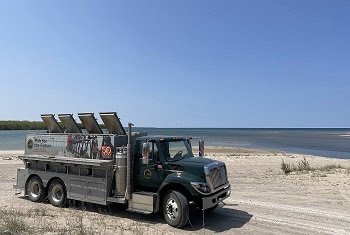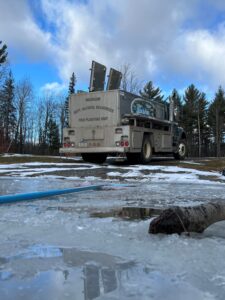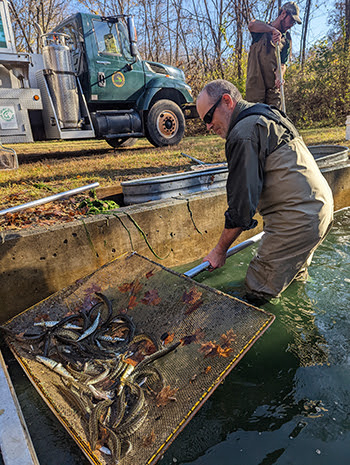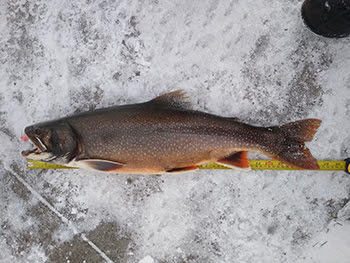Lake Superior Goes Wild for Salmon
The Michigan Department of Natural Resources today announced its decision to suspend Chinook salmon stocking in Lake Superior due to the success of the self-sustaining wild population. Department officials called it a very positive development for anglers, salmon populations in the lake and the DNR.
More than 99 percent of angler-caught Chinooks in Michigan waters originate from natural reproduction. This was determined through DNR creel surveys, which documented ratios of unclipped (wild) versus clipped (stocked) Chinook in Lake Superior since 2012.
Consistent harvests of Chinook salmon during the period when creel clerks have collected data provide a strong argument that anglers will continue to catch Chinook salmon, despite the conclusion of stocking efforts.
“By surviving and reproducing, wild salmon have demonstrated a fitness for the Lake Superior environment, and that fitness will be passed on to future generations, ensuring viable fisheries for years to come,” said the DNR’s Lake Superior Basin coordinator, Phil Schneeberger. “From a DNR hatchery perspective, money and effort from Lake Superior Chinook salmon rearing can now be redirected to other important programs.”
These findings were presented earlier in the year to the Lake Superior Citizens Fishery Advisory Committee, the South Shore Fishing Association, the Central Upper Peninsula Sport Fishing Association, the Upper Peninsula Sportsman Alliance and the Upper Peninsula Sportfisherman’s Association. In general, the information received confirmation, agreement and support among the diverse memberships.
“The sportfishing community wants to see license dollars spent to promote the greatest good for the lake,” said Lake Superior Citizens Fishery Advisory Committee Chair Mylan Koski. “Given the lack of hatchery fish showing up in angler catches, continuation of stocking would be wasteful and poor stewardship. Sportfishing groups look forward to working with the DNR to identify future stocking and/or management actions to benefit recreational opportunities in Lake Superior.”
Beyond Michigan waters, the predominance of wild Chinook salmon in Lake Superior fisheries also has been demonstrated by other agencies around the lake including Wisconsin, Minnesota and Ontario.
On a related historical note, Michigan ceased the stocking of coho salmon in Lake Superior after 2007, also because populations had become self-sustaining. The coho fishery in the lake has remained reliably strong since that time, supported completely from naturally reproducing fish.






